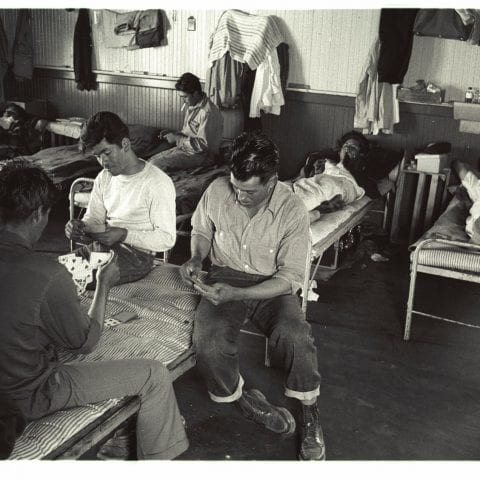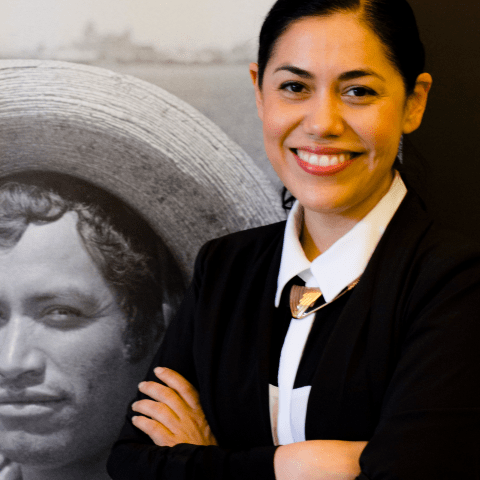From Ephemeral to Enduring: The Politics of Recording and Exhibiting Bracero Memory: A Lecture by Mireya Loza

From 2005-2009 the National Museum of American History embarked on one of its most ambitious collecting projects focused on documenting experiences around the Bracero Program, the largest US guest worker program. This talk focuses on the dilemmas of documenting memory for the Bracero History Archive and the reception of the National Museum of American History’s exhibit, “Bittersweet Harvest: The Bracero Program 1942-64.” The present-day political and social context in which these oral histories were collected left indelible marks on how the program is remembered. The retelling of bracero history also reveals contemporary concerns about the role that Mexican agricultural workers play in American society and sheds light on the national dilemma of immigration reform.
Image: Leonard Nadel, “After a long journey to the border, braceros walk across the bridge between Reynosa, Mexico and Hidalgo, Texas,” 1956. Leonard Nadel Collection, National Museum of American History.
Register at http://tinyurl.com/mireyalozaPHI
 Mireya Loza is an Associate Professor in the Department of History and the American Studies Program at Georgetown University. Her areas of research include Latinx History, Public History, Labor History and Food Studies. Her book, Defiant Braceros: How Migrant Workers Fought for Racial, Sexual and Political Freedom (UNC Press), examines the Bracero Program and how guest workers negotiated the intricacies of indigeneity, intimacy, and transnational organizing. Her first book won the 2017 Theodore Saloutos Book Prize awarded by the Immigration and Ethnic History Society and the Smithsonian Secretary’s Research Prize. She was also named a Distinguished Lecturer by the Organization of American Historians.
Mireya Loza is an Associate Professor in the Department of History and the American Studies Program at Georgetown University. Her areas of research include Latinx History, Public History, Labor History and Food Studies. Her book, Defiant Braceros: How Migrant Workers Fought for Racial, Sexual and Political Freedom (UNC Press), examines the Bracero Program and how guest workers negotiated the intricacies of indigeneity, intimacy, and transnational organizing. Her first book won the 2017 Theodore Saloutos Book Prize awarded by the Immigration and Ethnic History Society and the Smithsonian Secretary’s Research Prize. She was also named a Distinguished Lecturer by the Organization of American Historians.

